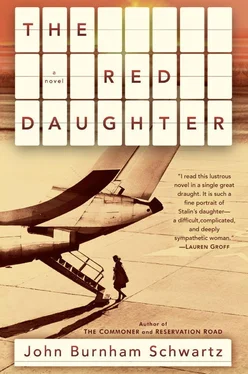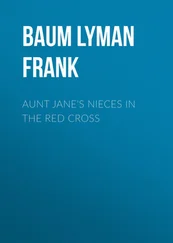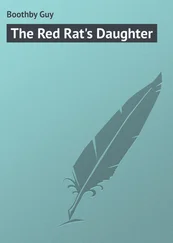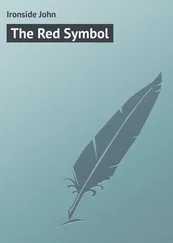John Schwartz - The Red Daughter
Здесь есть возможность читать онлайн «John Schwartz - The Red Daughter» весь текст электронной книги совершенно бесплатно (целиком полную версию без сокращений). В некоторых случаях можно слушать аудио, скачать через торрент в формате fb2 и присутствует краткое содержание. Город: New York, Год выпуска: 2019, ISBN: 2019, Издательство: Random House, Жанр: Историческая проза, на английском языке. Описание произведения, (предисловие) а так же отзывы посетителей доступны на портале библиотеки ЛибКат.
- Название:The Red Daughter
- Автор:
- Издательство:Random House
- Жанр:
- Год:2019
- Город:New York
- ISBN:978-1-40006-846-3
- Рейтинг книги:4 / 5. Голосов: 1
-
Избранное:Добавить в избранное
- Отзывы:
-
Ваша оценка:
- 80
- 1
- 2
- 3
- 4
- 5
The Red Daughter: краткое содержание, описание и аннотация
Предлагаем к чтению аннотацию, описание, краткое содержание или предисловие (зависит от того, что написал сам автор книги «The Red Daughter»). Если вы не нашли необходимую информацию о книге — напишите в комментариях, мы постараемся отыскать её.
The Red Daughter — читать онлайн бесплатно полную книгу (весь текст) целиком
Ниже представлен текст книги, разбитый по страницам. Система сохранения места последней прочитанной страницы, позволяет с удобством читать онлайн бесплатно книгу «The Red Daughter», без необходимости каждый раз заново искать на чём Вы остановились. Поставьте закладку, и сможете в любой момент перейти на страницу, на которой закончили чтение.
Интервал:
Закладка:
I practically spit at him. No. But now I know what you are.
With one quick strike of his powerful arm, he slaps me across the face.
Your boyfriend’s not even Russian! You had to go and find yourself a fucking Jew to make yourself feel important. Well, there’s nothing left of him. You’ll never see him again—yes, I’ve had him arrested . Now get out of my sight before I tell them to take you too.
For many months afterward, I was banned from Kuntsevo and my father’s inner circle for what he called depravity. And then, for unexplained reasons, I was reinstated into his life, though never fully: never again would my father and I be Housekeeper and Secretary to each other.
During the next ten years I was married to two men—one a Jew, one not, in the end it made no real difference to him—and with them had my two children, Josef and Katya. I can report that for the rest of his life my father showed no interest whatever in his grandchildren, and only intermittent curiosity about his daughter.
Yes, the rest of his life:
On March the second, 1953, I am at the academy as usual, pursuing my advanced studies, when I am called out of French class to find a gray-faced man I have seen before in my father’s company.
Malenkov wants you to come to Blizhny, he says to me.
Surprised and unsettled—Blizhny is the code for Kuntsevo, and the only person who has ever requested my presence at the dacha is my father himself—I say nothing. The man turns on his heels, sure that I will follow him to the car outside.
The short ride through the Moscow suburb passes in total silence. Of course, it occurs to me that my father is dead. Why else would this be happening? And yet my thoughts during the silent trip are tinged with banal recriminations. It has been a long time since I’ve seen him. He is an iceberg glimpsed from a distant ship, perhaps a mirage. From the usual sources I know that on the eve of my birthday the previous week he was at the Bolshoi seeing Swan Lake, though he did not think to ask me to join him. My last visit to Kuntsevo was many months earlier, when I could not help noticing the large color photographs of children on the walls of every room—not pictures of Josef or Katya or his other grandchildren, but enlarged images of vital young comrades of the Motherland, as he proudly referred to them. Who were these young heroes? I asked. Had he ever met any of them? Some boy expertly skiing, another sitting handsomely, bravely, in a blooming cherry tree, and so on. But he had not met any of those young comrades. No, he had no idea who any of them were.
We pass through the gates of Kuntsevo. Khruschev and Bulganin, both in tears, are waiting outside to intercept me the moment I step from the car. Each takes one of my elbows, ushering me inside the house, murmuring only that Beria and Malenkov will tell me everything I need to know.
The scene inside, however, in the place my father always kept so controlled, is a study in human panic. There are no familiar faces. I am led through the front hall and down the corridor, through a shifting maze of obscure medical personnel (his longtime personal doctor is in prison) and weeping apparatchiks, to my father’s quarters. His once-spacious room so packed with people that I can’t see to the back, where a still denser knot of human obsequiousness—I can hear Beria’s constipated voice above the rest—has gathered around the sofa where he always slept. Near this cultish scrum looms a large machine with oxygen tanks, which must be an artificial respirator, though it’s obvious that none of the men tentatively pawing at its tubes and switches has the slightest idea how to make it, or my father, breathe.
It is then that I see Beria, his entire body vibrating with the kind of rage only terror can bring, berating a professor from the medical academy.
You call yourself a doctor! You idiot! Now get over there and do something!
The singled-out victim steps forward with utmost reluctance—one almost pities him, forced to walk the fatal gangplank leading to the vozhd, which he has no doubt spent his entire professional life desperately trying to avoid—and I follow in his wake, the crowd briefly parting around us. Passing Beria, I note his round lenses streaked with the sweat that drips from him like madness. His drawn-out half bow in my direction is cynical in the extreme.
A body lies prone on the sofa. My father. Eyes open—but staring, dulled, nothing like the eyes I remember. His gaze a cruel illusion, the medical professor assures me, meaning to be kind, I suppose: the hemorrhage that erupted in my father’s brain in the middle of the night has left him in a profound state of unconsciousness. It is clear to me already that none of them knows how to wake him, and even if they did, are too terrified of failure to succeed.
As I stand watching, an injection is given into his limp arm. Then leeches are applied to his neck and the back of his head. It is medieval even by Soviet standards, and I turn away. Forgive me, sighs the medical professor under his breath—to me possibly, or to the vozhd himself, unlikely though he is to hear, or perhaps to the vozhd’ s son Vasily, who at this moment comes storming into the room like a vengeful prince from the wrong fairy tale, shoving men out of his path and shouting, You’ve killed him! You’ll pay for this! All of you! Poisoned him! I’ll see to it myself! Just a few seconds, too drunk to recognize me or his own truncated future—or perhaps this is exactly what he recognizes—and then, as if struck by lightning, he turns on his heels and bolts from the room.
Over the next three days, while Josef Stalin, trapped in that unwaking body, suffocates and withers, my perpetually drunk brother will return and replay his histrionics twice more, each time looking no one in the eye, each time running from the room as fast as his legs will carry him.
Meanwhile, I sit down. And take my father’s lifeless hand. And wait.
With the exception of my brother’s hysterical apparitions, I will be the only member of our family, distinct among the Berias and Malenkovs and the entire unimaginable apparatus of state power now witnessing its own demolishment in the dying body of a single man, to sit vigil over my father to the end. The rest of our people are either in prison or exiled from Kuntsevo by my father’s own decree. When I want company, which occasionally I do, I venture to the kitchen and sit quietly among the servants.
And Beria? He is a spider, spinning his web around the vozhd’ s body while the blood is still warm. He wants to wrap up something that never existed and hold it for himself alone. He thought he understood its nature, but he was wrong: they will kill him anyway.
By the third day, my father’s lips, cheeks, throat, the tips of his fingers and toes have turned a necrotic black, as his lungs fill with fluid and slowly, ceaselessly his own biological system strangles the life from him. He is rotting from the inside. I refuse to leave my place beside him. It is strange and awful how, now that it is too late, compassion for him riddles my perception. In every one of his struggling breaths I imagine a fatherly tenderness from a lost childhood which contradicts all that has transpired between us since. The more ravaged his face grows, the more beautiful I find it.
And then, as the death rattle grows imminent, just when it seems the final exhalation of his power has gone forever, something happens that I will never be able to unremember. His eyes, closed these last hours, open, his head turns to the side, and he looks out over the room, over every single face, his anger dissolving into a small child’s lonely fear of the dark—when suddenly he raises his hand and jabs a blackened finger at us all, one last wordless curse over those who would watch him die.
Читать дальшеИнтервал:
Закладка:
Похожие книги на «The Red Daughter»
Представляем Вашему вниманию похожие книги на «The Red Daughter» списком для выбора. Мы отобрали схожую по названию и смыслу литературу в надежде предоставить читателям больше вариантов отыскать новые, интересные, ещё непрочитанные произведения.
Обсуждение, отзывы о книге «The Red Daughter» и просто собственные мнения читателей. Оставьте ваши комментарии, напишите, что Вы думаете о произведении, его смысле или главных героях. Укажите что конкретно понравилось, а что нет, и почему Вы так считаете.












